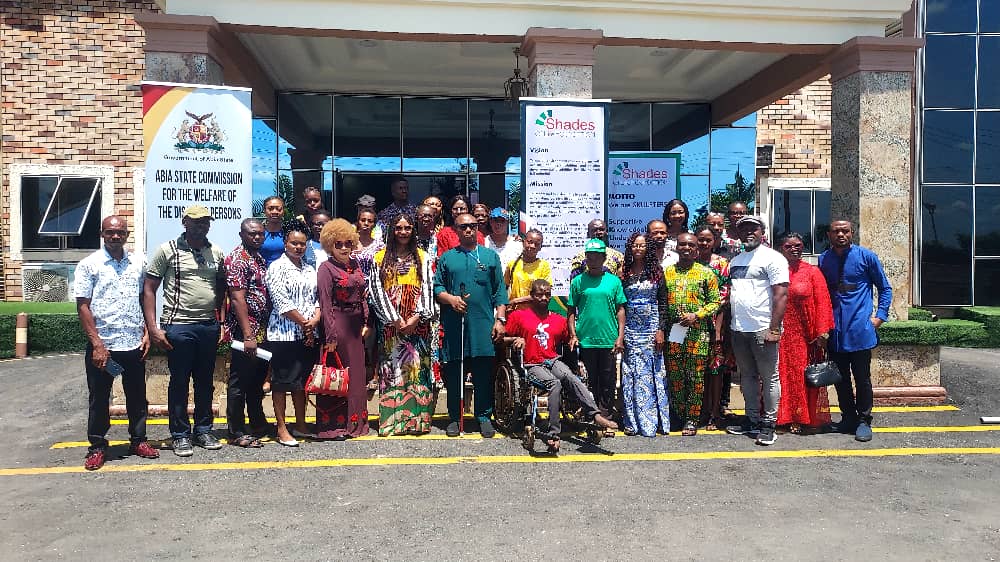Health and education experts have called on parents, caregivers, and educators to be more observant of early signs of autism and learning disabilities in children.
The appeal was made at an awareness program held today, in Umuahia, Abia State.




The event was organized by the Shades of Life Foundation in collaboration with the Abia State Commission for the Welfare of Disabled Persons.
Delivering the keynote address, Dr. Eziafakaku Nwaokolo, Chief Executive Officer of Shades of Life Foundation, described autism as a spectrum of complex neurodevelopmental disorders that affect communication, behavior, and social interaction.
“Autism Spectrum Disorder (ASD) presents differently in each child,” Dr. Nwaokolo said. “Some show signs as early as 12 months, while others may not exhibit noticeable symptoms until 24 months or later. What’s important is that caregivers and teachers pay close attention and do not dismiss these early indicators.”
She emphasized that although autism typically begins before the age of three, it is a lifelong condition that evolves over time.
“Adolescents with autism may struggle with forming friendships, understanding social cues, and adjusting to expectations in school or the workplace,” she added. “Early detection and consistent support are key to helping them reach their full potential.”
Dr. Nwaokolo also highlighted the urgent need to combat stigma and misinformation about neurodevelopmental disorders.
“We must move away from labeling children with autism as ‘stubborn’ or ‘possessed,’” she said. “These are medical conditions that require compassion, professional care, and informed support.”
She expressed gratitude to the Governor of Abia State, Dr. Alex Chioma Otti, for his inclusive policies and continued support for persons with disabilities.
“Governor Otti has shown that he is a leader who listens and prioritizes the needs of vulnerable populations,” she noted.
Dr. Stanley Onyebuchi, Commissioner for the Welfare of Disabled Persons in Abia State, commended the initiative, describing it as both “timely and necessary.”
“Raising awareness about autism, especially in rural communities, requires the combined efforts of parents, teachers, health workers, and traditional leaders,” Dr. Onyebuchi said. He stressed the importance of professional training in autism diagnosis, noting that a tailored approach is required for each child.
“There’s no one-size-fits-all model,” he explained. “Diagnostic tools and interventions must be adapted to each child’s age, environment, and unique challenges. Building local capacity is essential.”
He further urged health institutions and civil society organizations to extend awareness efforts to grassroots communities, where knowledge about developmental disorders is often lacking.
Also speaking at the event, Comrade Dan Onuoha, Head of the Information Unit and Public Relations at the Secondary Education Management Board, outlined some key early warning signs of autism and learning disabilities.
“If a child does not make eye contact by 12 months, avoids playing with peers, repeats certain behaviors, or doesn’t use gestures like pointing or waving, these could be red flags,” Onuoha said. “Teachers must be trained to identify these signs and communicate them to parents early.”
He advocated for stronger collaboration between schools and health agencies to build inclusive learning environments for children with special needs.
The event concluded with a collective call for sustained public sensitization, stronger policy implementation, and a more empathetic approach to neurodevelopmental conditions.
“We need a society that sees ability—not disability,” Dr. Nwaokolo said in her closing remarks. “With the right support, children with autism and learning challenges can thrive at home, in school, and beyond.”

























